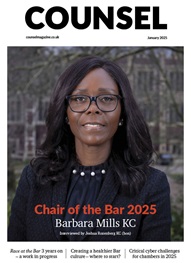*/
Statute – Construction. The appellant, a police corporal in the police service in Trinidad and Tobago, sought compensation, under the Protective Services (Compensation) Act 1996 Act, after he fell at work and fractured his spine. The compensation committee concluded that it had no jurisdiction to award compensation as the injury which the appellant had suffered was not one covered under the Act. The Court of Appeal dismissed the appellant's appeal. The Privy Council, allowing the appeal, held that, by inadvertence, the draftsman and Parliament, had failed to give effect to the statutory intention of importing complementary provisions of a previous Act, providing for the quantification of benefits in cases of permanent partial disablement. In light of the obvious and particular error which had occurred, the introduction of a provision resembling one in the previous Act, which made provision for compensation for permanent partial disablement resulting from injury not specified in the schedule to the Act was a permissible and necessary insertion.
Statute – Construction. The appellant, a police corporal in the police service in Trinidad and Tobago, sought compensation, under the Protective Services (Compensation) Act 1996 Act, after he fell at work and fractured his spine. The compensation committee concluded that it had no jurisdiction to award compensation as the injury which the appellant had suffered was not one covered under the Act. The Court of Appeal dismissed the appellant's appeal. The Privy Council, allowing the appeal, held that, by inadvertence, the draftsman and Parliament, had failed to give effect to the statutory intention of importing complementary provisions of a previous Act, providing for the quantification of benefits in cases of permanent partial disablement. In light of the obvious and particular error which had occurred, the introduction of a provision resembling one in the previous Act, which made provision for compensation for permanent partial disablement resulting from injury not specified in the schedule to the Act was a permissible and necessary insertion.


The Bar Council faces both opportunities and challenges on our key areas this year
Rachel Davenport, Co-founder and Director at AlphaBiolabs, discusses the role that drug, alcohol and DNA testing can play in non-court dispute resolution (NCDR)
Casey Randall explores what makes AlphaBiolabs the industry leader for court-admissible DNA testing
By Louise Crush of Westgate Wealth Management
A family lawyer has won a £500 donation for her preferred charity, an education centre for women from disadvantaged backgrounds, thanks to drug, alcohol and DNA testing laboratory AlphaBiolabs’ Giving Back campaign
Louise Crush of Westgate Wealth Management highlights some of the ways you can cut your IHT bill
What's it like being a legal trainee at the Crown Prosecution Service? Amy describes what drew her to the role, the skills required and a typical day in the life
Barbara Mills KC wants to raise the profile of the family Bar. She also wants to improve wellbeing and enhance equality, diversity and inclusion in the profession. She talks to Joshua Rozenberg KC (hon) about her plans for the year ahead
Are Birmingham’s Intensive Supervision Courts successfully turning women offenders’ lives around? Chloe Ashley talks to District Judge Michelle Smith
Professor Dominic Regan and Seán Jones KC identify good value bottles across the price spectrum – from festive fizz to reliable reds
Governments who play fast and loose with the law get into real trouble, says the new Attorney General. The Rt Hon Lord Hermer KC talks to Anthony Inglese CB about what drew this boy from Cardiff to the Bar, bringing the barrister ethos to the front bench, and how he will be measuring success